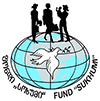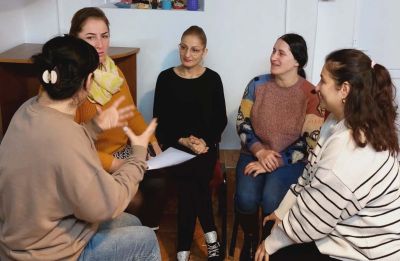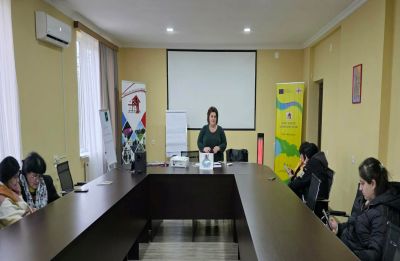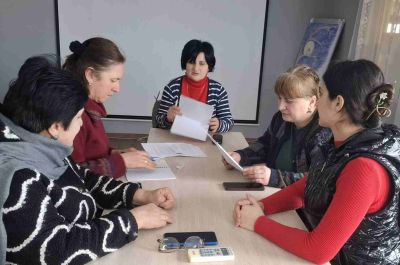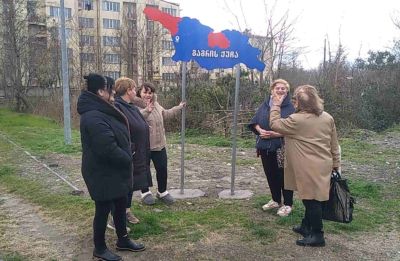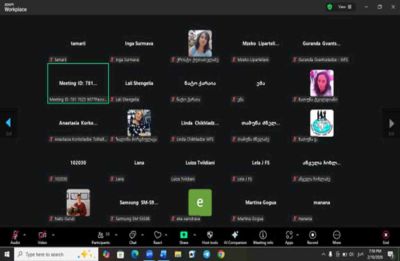TV Company "Rioni" broadcasted a TV story about the roundtable meeting held in Tskaltubo. The topic of the roundtable meeting was "the implementation of gender approaches at the local level."
Gender mainstreaming in the local municipality, existing resources and future strategies – these were the issues discussed by the representatives of legislative and executive authorities, and organizers and participants of the meeting in the TV spot.
The TV story was made as part of the project “Learning from the experience of Visegrad Four to advocate for equal, inclusive and democratic local governance”.
